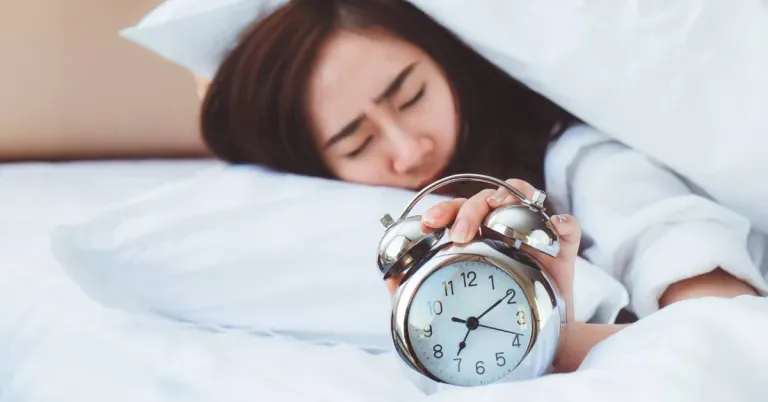Our favourite places to stay on this sleepy Cebu island.
Filipinos Are the Most Sleep-Deprived in Southeast Asia

Are you finding it hard to catch quality sleep during your stay in the Philippines? You're not alone. Recent studies reveal that Filipinos are among the most sleep-deprived people not just in Southeast Asia but also globally. Understanding this widespread issue can offer valuable insights for travellers looking to make the most of their Philippine experience.
Also read: Manila’s Nightlife Shines: Second Best in the World for 2024
Understanding why Filipinos are the most sleep deprived in Southeast Asia

A 2023 study conducted by Milieu Insight has highlighted a concerning trend: 56% of Filipinos get less than seven hours of sleep each night. This statistic places the Philippines at the top of the list among Southeast Asian countries dealing with sleep deprivation. For comparison, other nations in the region reported lower percentages of sleep-deprived individuals, including Thailand at 49%, Indonesia at 44%, Vietnam at 43%, Singapore at 42%, and Myanmar at 39%. Globally, this puts the Philippines in the fourth position for the highest rates of sleep deprivation.
This isn't a new development. Back in 2019, the World Economic Forum found that the average Filipino was clocking in only between 6 hours and 30 minutes to 6 hours and 45 minutes of sleep per night. These figures fall short of the National Sleep Foundation's recommendation of 7 to 9 hours of sleep for adults to maintain optimal health and well-being.
Chronic sleep deprivation is more than just feeling groggy during the day. Research links insufficient sleep to serious health issues, including hypertension, heart attacks, diabetes, depression, and even the accumulation of brain plaque associated with Alzheimer's disease. For locals, this poses significant long-term health challenges, but what does it mean for travellers?
Tips for travellers to sleep better in the Philippines
Understanding the local sleep culture and challenges can help visitors take proactive steps to ensure restful nights during their trip:
Choose Accommodation Wisely: Opt for hotels or accommodations that prioritise comfort and quietness. Consider locations away from busy streets or nightlife hubs if you're sensitive to noise.
Adapt to Local Schedules: The hustle and bustle of Filipino cities can be intense. Try to align your activities with local peak and off-peak hours to minimise stress and maximise relaxation time.
Mind the Climate: The Philippines' tropical climate can affect sleep quality. Ensure your sleeping environment is adequately cooled and ventilated, especially during the hotter months.
Stay Hydrated and Eat Well: Proper hydration and a balanced diet can improve sleep quality. Enjoy local cuisine but be mindful of heavy or spicy meals close to bedtime.
Limit Screen Time Before Bed: With vibrant cityscapes and active nightlife, it's tempting to stay engaged late into the night. However, reducing screen time and winding down can help you achieve better rest.
Also read: Siargao Ranked Among Most Affordable Tourist Destinations in Asia
Travelling is as much about exploration as it is about rest and rejuvenation. By being aware of the prevalent sleep patterns and challenges in the Philippines, travellers can make informed choices to enhance their overall experience. Prioritising good sleep will not only keep you healthy during your travels but also ensure you're energised to fully enjoy all the beauty and excitement that the Philippines has to offer.
So, the next time you find yourself in this beautiful archipelago, remember that a good night's sleep is the first step to an unforgettable adventure. Sleep tight and travel bright!
Featured image credit: kanchanachitkhamma via Canva Pro
Published at
About Author
Anne Mercado
Subscribe our Newsletter
Get our weekly tips and travel news!
Recommended Articles
10 Bantayan Island Resorts, Hotels, and Rentals for Your Tropical Escape 14 Best Credit Cards for Travel in the Philippines The only plastic we need for travel.
10 Best Mountain Cafes in the Philippines for Your Peak Coffee Experience Coffee date on the mountains, anyone?
10 Family Outing Ideas in Metro Manila Under ₱500 Looking for a weekend bonding with the family under ₱500? Head to these places, pronto!
10 Fun Things to Do in Manila Alone Live your best life in Manila, even when you’re riding solo.
Latest Articles
Pahiyas Festival 2025: A Vibrant Celebration in Lucban Quezon Pahiyas is back and brighter than ever!
Top 10 Family-Friendly Things to Do in Europe Unmissable experiences for all ages
Scoot’s Direct Flights from Singapore to Iloilo Are Finally Here — Here’s What You Need to Know Fly direct from Singapore to Iloilo with Scoot!
Cheung Chau Bun Festival 2025: Where to Go, What to Do, and How to Join Experience the thrill of the Cheung Chau Bun Festival 2025
New Theme Parks in Southeast Asia for Filipino Travellers Upcoming theme parks worth visiting

